MercoPress. South Atlantic News Agency
Tag: Latam
-
Tuesday, May 24th 2011 - 00:54 UTC
Euro troubles and slower growth in China and EU hit Latin American markets
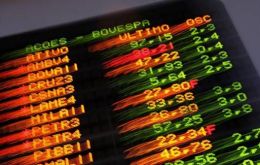
Latin American stocks fell to an eight-month low on Monday triggered by concerns that the Euro zone debt problem was deepening and signs of slower growth in China. The region’s largest market Brazil’s Bovespa ended at its lowest since July 2010
-
Sunday, May 22nd 2011 - 23:31 UTC
Chile, Peru and Costa Rica join the Geneva based UN Human rights council
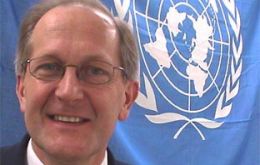
Chile, Peru and Costa Rica will be representing Latin America and the Caribbean in the UN Human Rights Council for the next three years, following a round of balloting among UN member states over the weekend.
-
Saturday, May 21st 2011 - 03:09 UTC
EU and Latam lawmakers more positive about a trade agreement with Mercosur

The outcome of a two-day European and Latin America lawmakers’ meeting in Uruguay was considered very positive and a strong message to forward negotiations on the sensitive EU/Mercosur trade and cooperation agreement.
-
Tuesday, May 17th 2011 - 23:16 UTC
Latin America has 45% of under 18, equivalent to 81 million living in poverty
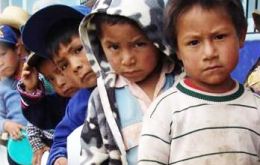
Almost 81 million children under 18 suffer from poverty in Latin America which is equivalent to 45% of that age group according to a study by the Economic Commission for Latin America and the Caribbean (ECLAC) and the United Nations Children's Fund (UNICEF).
-
Friday, May 13th 2011 - 05:18 UTC
IMF warns Latam economic boom ‘could end in tears’ if spending is not trimmed
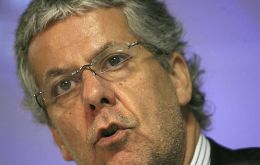
Latin America's economic boom could end in a “full-blown” crisis unless the region's governments properly manage the situation, the International Monetary Fund's top regional official said in an unusually stark warning to both policymakers and investors.
-
Wednesday, May 11th 2011 - 08:00 UTC
Chile will become first develop country in Latam, says world’s richest man
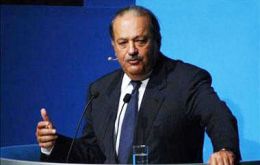
Chile will become the first developed country in Latin America, predicted Mexican communications mogul Carlos Slim, the richest man in the world, in an economic presentation given in Honduras last Thursday.
-
Wednesday, May 11th 2011 - 07:46 UTC
Brazil’s oil giant Petrobras the most valuable brand in Latin America
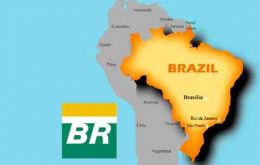
Brazil’s oil and gas corporation Petrobras was ranked first in a new listing of the most valuable brands in Latin America, with an estimated brand value of 13.4 billion US dollars.
-
Monday, May 9th 2011 - 06:09 UTC
IDB opens discussion on food prices shock, inflation and protecting the urban poor

Rising international food prices could trigger an acceleration of inflation in several countries in Latin America and the Caribbean this year, highlighting the need for policies to protect the urban poor, according to a new study by the Inter-American Development Bank, (IDB).
-
Monday, May 9th 2011 - 06:07 UTC
Latam development bank plans more flexible loans tailored to countries needs
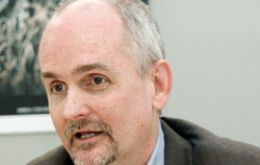
The Inter-American Development Bank (IDB) announced the approval of a Flexible Financing Facility (FFF) that will enable Latin American and Caribbean countries to tailor loan terms and conditions to suit their individual needs, as well as to use hedges to manage interest rate and currency risks associated with their IDB debt.
-
Wednesday, May 4th 2011 - 23:15 UTC
IMF warns Latam of ‘complacency’, leading to overheated economies
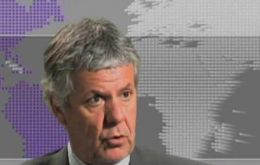
Economic growth in much of Latin America remains strong, propelled by rising commodity prices, easy financing conditions, and stimulative policies. Growth exceeded 6% in 2010, and while it is projected to moderate to about 4¾% in 2011, the IMF says countries should remove the policy stimulus on a timely basis.
